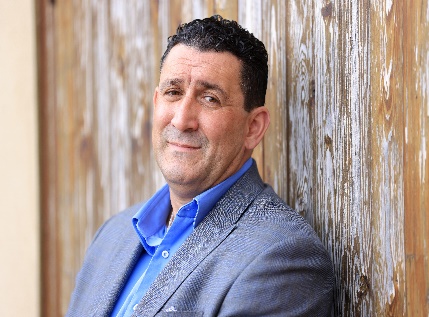Chronos Publishing having acquired the rights from Agent Fox Media, are delighted to announce that they have signed Stephen Gillen in a two-book deal. Stephen was one of the UK's most wanted London gang members and was incarcerated for 15 years as a Category A prisoner, having spent his jail time with some of the UK's most prolific criminals, including Charles Bronson with whom he remains in contact today.
In this 'tell all' book, Stephen, 52, discusses the demons that have chased him from childhood, pushing him into crime and ultimately causing him to pay a terrible price. Stephen's autobiography details his life inside some of the UK's 'darkest and most dangerous' prisons and how a complete psychotic break finally helped him to see how his life could be better.
Following his release in 2003, Stephen is determined to help others avoid going down a criminal path. Now a successful CEO, author and TV personality, his life story has been opted for screen and his upcoming projects include a TV series alongside the two-book deal with Chronos Publishing.
Extraordinary. Stephen Gillen The Search For A Life Worth Living, will be released in Spring 2024.
Stephen said:
'It has been even traumatic at times to have delved back into the depth of my dark past, but the mission and message of how I survived at such a high level of constant danger and navigated a true transformation to true redemption and hope, needs to be told. There are many others who are destined to wrestle personal darkness but this destruction can be the most creative brightness. Life balances all things in the end, and it gives us not what we want – but what we become.
Showreel on Stephen Gillen VIEW HERE!
Taryn Johnson Publishing Director of FCM Publishing said:
'It's very rare to come across such a story of resilience, retribution, horror, and hope. Stephen has a life story that Guy Ritchie could only hope of imagining and yet he has clawed his way back, and in doing so is now helping others. I hope that people reading this book will see that even those deemed unworthy of a second chance, have something to give and that the mind is ultimately the most powerful tool we have.
I knew the moment I read the first draft that this was a story that had to be told, now with as-yet-untold chapters and a deeper look into the darkness. It's a bloody gripping read already and it's just going to be phenomenal when it comes out.'






